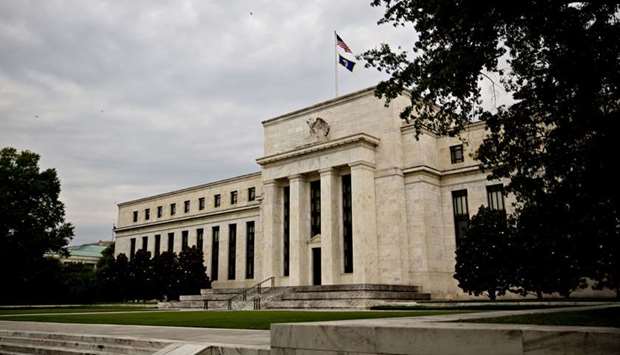Europe’s primary bond market enjoyed its busiest day yesterday, in six weeks as issuers from Spain to Diageo Plc seized on a positive turn in sentiment sparked by the Federal Reserve’s plan to directly finance US firms.
Eleven borrowers are marketing new debt yesterday, the most since February 11, as measures of corporate credit risk fell for a second day. The rebound contrasts with Asia where dollar debt sellers are yet to re-enter the market.
“It seems like the Fed and expectation of unlimited support from central banks has got the cogs working,” said Bryn Jones, head fixed income at Rathbone Brothers Plc. “This is much-needed.”
The rush of deals follows a move by the Federal Reserve which offered to directly finance US companies, even as Congress continues to argue over a stimulus package.
Asian and European stocks have rallied after the biggest plunge since 2016. The economic backdrop remains grim, however, with the eurozone sinking into a major slump as business activity slows to a standstill.
Spain is marketing Europe’s first syndicated government bond in a month to fund massive stimulus to protect the economy from the coronavirus pandemic.
Orders for the sale of euro notes due in seven years reached more than 13.5bn euros ($14.6bn) early in the sales process, according to a person with knowledge of the matter, who declined to be identified citing company policy.
Corporates are also rushing to raise finance, with Diageo raising both pound and euro notes, while Nestle SA, Coca-Cola European Partners Plc and Sanofiare among firms piling in to the euro debt market today. Orders for Sanofi’s two-part sale were said to already exceed 3bn euros, a person with knowledge of the matter said. Among financials, Bank of America is offering euro notes, a separate person with knowledge of the matter said.
Asia is trailing the pick-up, with issuance stalling earlier this month as the coronavirus pandemic sowed fear that business shutdowns would cripple companies’ abilities to service debt. Spreads on dollar notes in Asia tightenedfor the first time in 10 days after the Fed action, but remain near Monday’s eight-year high.
Europe’s primary bond market is enjoying its busiest day in six weeks, with 11 new offerings spanning SSAs, financials and corporates.
Spain’s sale of euro seven-year notes will be the first sovereign issue since February 25, when it raised 5bn euros of 2050-maturity notes.Measures of corporate credit risk eased for a second day, with the Markit iTraxx Europe index of credit-default swaps on investment-grade rated firms tightening nearly 9 basis points to about 105.5 and the lowest in nearly two weeks.
Euro high-grade company bond spreads stand at 245 basis points as of Monday’s close and the highest since June 2012. The spread gap between euro high-yield and investment-grade bonds has reached the widest since the financial crisis as investors flee risky assets and central banks unleash buying programs targeted at high-grade notes.
Stocks have opened higher this morning, climbing from the lowest since 2016, with US index futures also rallying.
Asia’s dollar-bond market remained cautious, with no new deals being marketed even as credit-default swaps and spreads tightened. A Chinese company is preparing to sell euro-denominated bonds.
Asia investment-grade dollar bond spreads were about 10-30 basis points tighter, according to traders. That leaves them on course for their first tightening in 10 days, after hitting the highest in more than eight years on Monday.
The Markit iTraxx Asia ex-Japan of index credit default swaps retreated about 30 basis points, according to traders, paring a rise of 36 on Monday.
Traders said that while the market seemed more orderly overall, a broader boost from the Fed would take more time to trickle down to emerging-market credit.
The Fed’s plan to support corporate debt is creating a divide in credit markets, providing a boost to investment-grade bonds while junk is getting left behind.
Investment-grade CDX was more than 20 basis points tighter on Monday as investors cheered the Fed’s signal for unlimited quantitative easing, which will support high-grade credit.
The Fed’s programme will focus on the front-end, which has been battered the most.
The central bank won’t buy bonds of companies that are expected to receive direct financial assistance under pending federal legislation, like airlines and other travel companies.

The US Federal Reserve building in Washington, DC. Europe’s primary bond market enjoyed its busiest day yesterday in six weeks as issuers seized on a positive turn in sentiment sparked by the Federal Reserve’s plan to directly finance US firms.
